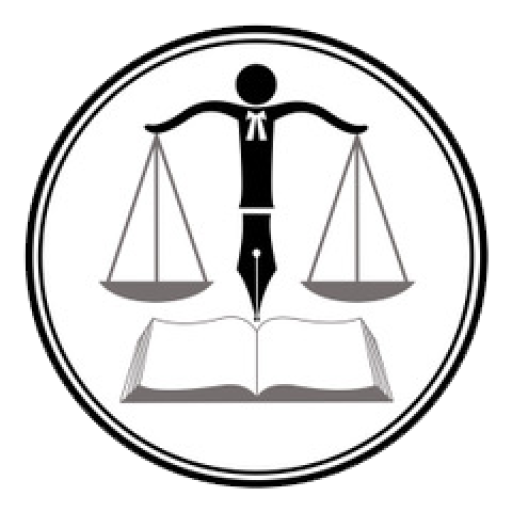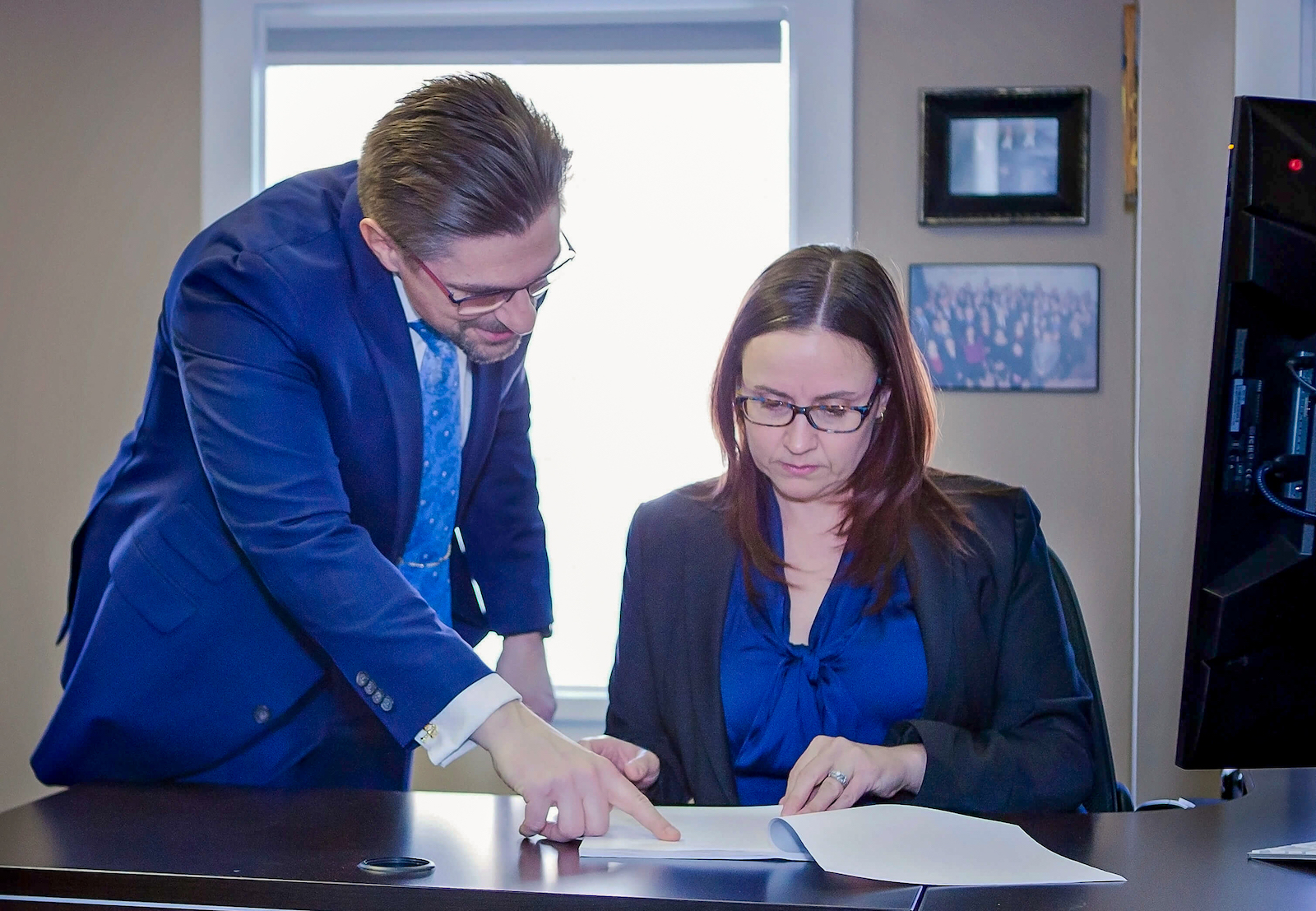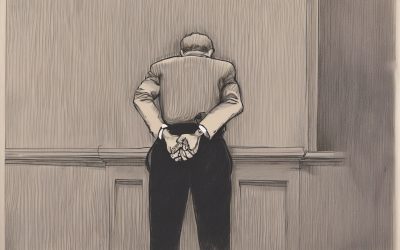This week’s top three summaries: R v Titong, 2021 ABCA 75: accused #testimony, R v Tshibola, 2021 ONSC 1346: #interpretation rights, and R v Mtgona, 2021 ONSC 1482: #refusal breath demand.
R v Titong, 2021 ABCA 75
[March 1, 2021] Judging the Evidence of An Accused as Self-Serving [Peter Martin, Ritu Khullar, Dawn Pentelechuk JJ.A.]
AUTHOR’S NOTE: While all the law is usually on the side of the accused when their evidence is judged, public and sometimes judicial attitudes are on the complete opposite side. This line of thinking dismisses anything an accused has to say in testimony as fuelled by a desire to avoid penal consequences without consideration. This attitude has a long history. The rules of interest prevented accused persons from testifying in their own defence until the end of the 17th Century. (See: History and Development of the Accused’s Right to Testify: Washington University Law Review). However, this very attitude is the reason why the law presuming the accused innocent and requiring the Crown to prove their guilty beyond a reasonable doubt is so important. Without these laws, all accused would be at the mercy of this underlying attitude whenever it presented. In this case, the attitude presented through the trial judge rejecting the evidence of the accused as “self-serving” without giving any other explanation.
Facts
[1] The appellant was charged with nine counts arising from alleged misconduct with four young women in his employ. Following a trial by judge alone he was convicted of three of those offences involving two complainants and acquitted of the remaining six charges. He appeals the convictions, alleging inter alia, that the trial judge erred in rejecting his evidence denying the offences because it was “self-serving”.
[5] The trial judge accepted the appellant’s account of everything except his denials of touching and kissing of the complainant:
I reject Mr. Titong’s evidence about what happened between him and [TB] in the office while [the boyfriend] was away. His denials are self-serving and I do not believe him.
[6] On the other hand, the trial judge noted the inconsistencies in the complainant’s testimony, but found her account of the appellant touching her to be credible.
[9] Characterizing an accused’s evidence as “self-serving” does not necessarily disclose an error of law, where, for example, use of the descriptor is contextualized with an articulation of why the accused’s evidence is self-serving or why, overall, the accused is found not to be credible: R v SMC, 2020 ABCA 19. However, a simple denial is consistent with the presumption of innocence and to reject it as self-serving, without more, would undermine that presumption and the concerns underpinning the seminal decision of R v W(D), 1991 CanLII 93 (SCC), [1991] 1 SCR 742. One may rhetorically ask what more could an innocent person say in such circumstances. As noted by this court in R v CEK, 2020 ABCA 2 at para 24, a mere denial cannot be turned into a reason to disbelieve the accused. To do so would also place an unwarranted burden of proof on the appellant: R v Huot, 2016 ABCA 339, at para 12.
[10] It was an error for the trial judge to reject the appellant’s evidence denying the allegation simply because it was thought to be self-serving.
[15] The appellant offered a different account. He testified that while talking about tattoos, the complainant removed her shirt to show him her tattoos while wearing only her bra. He said she then invited him to touch her breasts and took his hand to guide them to her breasts but that he did not touch them.
[16] As to the third incident complained of by TB, the trial judge said: “I do not believe Mr. Titong’s evidence about this incident. His reporting is contrived. The evidence is self-serving.”
[17] Our concern is that the trial judge, having earlier wrongly thought that a mere denial could be rejected as self-serving evidence, may again have placed significant reliance on that misunderstanding in rejecting the appellant’s evidence in response to this allegation. That concern leaves this conviction unsafe.
[20] As to disposition, we have considered the following; the nature of the allegations, the fact the complainants were required to testify on two occasions, that the appellant has now served 16 days of his sentence and has complied with the conditions of his bail while awaiting trial and pending the appeal. We are also mindful of the length and expense of the proceedings to date; the charges were laid in 2016, the trial concluded in January 2019 and the appellant was sentenced on March 9, 2020. Upon considering all of these factors we think that justice is best served by concluding the matter. Accordingly, we direct that the convictions be quashed and acquittals be entered.
R v Tshibola, 2021 ONSC 1346
[February 22, 2021] Charter s.14 – The Right to Adequate Interpretation [Allen J.]
AUTHOR’S NOTE: As a Polish-speaking lawyer, I have had the experience of sitting through trials with a Polish interpreter and understanding both sides of the conversation. On occasion, I have had to object to the interpretation on the spot. The process is awkward, but in my experience the interpreters have been good enough to correct the interpretation. For me, this brings into sharp contrast the situation that presents when I do not understand the language being interpreted. At that point, I am acutely aware that my client and I are at the mercy of adequate interpretation.
This case shows how lawyers can undo the harm of inadequate interpretation on appeal.
Facts
[2] The Appellant, Ibrahim Tshibola, appeals against the October 20, 2017 guilty verdict made by Justice McLeod of the Ontario Court of Justice on the charge of sexual assault under s. 271 of the Criminal Code. The trial proceeded over four days in September 2017. The Appellant received the assistance of two French interpreters.
[3] The Appellant brought the Appeal on three grounds. One of the grounds asserts that his right under s. 14 of the Charter of Rights to have the assistance of a competent interpreter was violated during the trial. To support that ground the Appellant brought a fresh evidence application (“the Application”) in which he relied on the expert opinions of two independent French interpreters. The Respondent opposed the admission of the fresh evidence.
[4] I heard the arguments on the fresh evidence application. I opted to bifurcate my decision and determine the s. 14 Charter issue first since a determination on that ground would be dispositive of the appeal. I indicated to the parties that I would inform them of my decision in advance of a scheduled return date so they would know whether the further date would be necessary.
[5] The Appellant was convicted of sexual assault on the Complainant, a 25-year-old woman, after they had been dancing and drinking at a bar in the Entertainment District in Toronto. They did not know each other before they met at the bar. They left the bar around 2:45 a.m.
[6] Shortly afterward, the Complainant and the Appellant were inside the vestibule of a bank at the corner of King St. West and Simcoe St. Passersby, who became trial witnesses, testified that they observed through the glass windows of the vestibule the Complainant lying prone on her back on the floor of the vestibule with her naked body fully exposed and the Appellant on top of her having vaginal intercourse with her. When the Appellant saw the witnesses, he rolled off of the Complainant and moved to another spot in the vestibule. Bank video surveillance captured the entirety of the incident. The Appellant did not deny he was depicted and alleged the sex was consensual.
[7] The Complainant had no recollection of leaving the bar, entering the bank, or of being sexually assaulted. The Complainant had been drinking before she arrived at the bar and had several drinks at the bar. Consent is the issue, specifically, whether the Complainant had the capacity to form consent.
[10] The Appellant is a francophone from the Democratic Republic of Congo (the DRC) who immigrated to Canada in 2011. He testified that he grew up speaking French. After arrival in Canada, he studied English and completed a certificate for language and one year at an anglophone college. At the time of the trial, he was attending a business program at a community college in Toronto.
[11] The Appellant testified on September 20 and 21, 2017, and was assisted by a different interpreter each day. An interpreter sat with him and assisted him at the defence table and he also received assistance when he testified from the witness stand. The Appellant elected to have the trial conducted in English. He asked that he be assisted by a French interpreter only if he needed interpretation with particular English words. Despite the Appellant’s wishes, and as it turns out a wise decision in retrospect, the trial judge required the interpreter to interpret the testimony of the Appellant, all testimony of other witnesses, and all English verbal exchanges between trial participants during the proceeding. The trial judge intervened on some occasions during the trial to remind the Appellant to speak only in French.
The Section 14 Right to the Assistance of an Interpreter
[12] Section 14 of the Charter of Rights protects the right of a witness to have the assistance of an interpreter in proceedings in which the witness does not understand the language in which the proceedings are being conducted.
[14] Courts have established standards for the quality of interpretation needed to protect the witness’s Charter rights. The Ontario Court of Appeal cited and elucidated the criteria set down by the Supreme Court of Canada in R. v. Tran, 1994 CanLII 56(SCC), [1994] 2 S.C.R. 951 (S.C.C.). The criteria are:
a) “continuity” which ensures continuous interpretation without breaks or summaries of the evidence;
b) “precision” which requires quality interpretation that need not be perfect;
c) “impartiality” which requires an unbiased and objective approach; and
d) “competency” which requires interpretation of a sufficiently high quality to ensure justice will be done and appear to be done.
[R. v. Rybak (2008), 233 C.C.C. (3d), at paras. 81 – 85, (Ont. C.A.)].
Fresh Evidence
[15] The Appellant submits that during the trial he was not provided adequate French interpretation. The burden of establishing this is on the Appellant. He relies on the expert opinions of the two independent interpreters one of whom audited the transcript and the other who opined on the differences between the French used in Canada and the French used in the DRC.
[27] The right under s. 14 of the Charter is jeopardized by a departure from the constitutionally-guaranteed standards of interpretation when there is a lapse occurring at a time in the proceeding where the Appellant’s vital interests were at stake. The guaranteed standard of interpretation is required to be assessed on the criteria of continuity, precision, impartiality, competency, and contemporaneity: [R. v. Tran, at pp. 979 and 985 – 86].
[28] The trial court recognized and provided for the need for interpretation services. The Appellant’s position is that the fresh evidence provided by the two interpreters establishes that the interpretation services at trial fell below the constitutionally guaranteed standard. Both experts cite various types of errors – omissions, additions, and distortions in the French translations on both days the Appellant testified.
[29] Ms. Frydman de Helfant cited many errors including more than a dozen instances of the interpreter engaging in exchanges with the judge or counsel that were spoken to directly by the interpreter and not translated into French for the Appellant. In Tran, the Supreme Court held that the failure to translate the interpreter’s exchanges with the judge resulted in a failure to meet the requirements of continuity of interpretation: [R. v. Tran, p. 1002].
[30] I cite below some but not all of the errors Ms. Frydman de Helfant highlights in her affidavit which she drew directly from aspects of the audio recording of the trial proceeding.
Original Language: She was very good. We talked with each other. We had a conversation there how much money do you want so we can have sex. She told me: OK, you pay me 100 dollars.
Incorrect Version: She was very well, she was very good. We talked. We even had a discussion. She said: “How much would you pay, how much would you pay me to have sex with me, like a hundred dollars? That I would pay her.
…
Original Language: Court: The question was – or the suggestion was, in a somewhat incredulous tone, you thought this girl was completely sober, sobre, had not been drinking
Incorrect Version: The question that was asked of you… [Court continues and Interpreter does not finish interpretation – goes instead to simultaneous mode while Court continues]
Original Language: And during this next time when you were dancing, after the four shots, did you think that she was still completely sober?
Incorrect Version: And after that, after having danced, and after those four shots, did you still think she was sober?
…
Original Language: This, this is a moment where she is suggesting sex to you, right?
Incorrect Version: This is a moment where she suggests she wants sex with you, right?
Original Language: No she didn’t say it, or no you don’t agree that she didn’t say it?
Incorrect Version: No she didn’t say it, or no you don’t agree that she said it.
[31] For his part, Mr. Kansela addressed cultural/linguistic differences between Canadian and Congolese French which the Appellant submits resulted in misapprehension in interpretation. Mr. Kansela identified additions, omissions, unnecessary explanations, and distortions of meanings. This, Mr. Kansela explained, resulted from the interpreter’s failure to promptly and fairly understand, process, and render the accurate meaning of the words spoken. He indicated there were other sources of faulty interpretation resulting from the Appellant’s linguistic barriers and the extent of his comprehension of French. Mr. Kansela also drew examples from the audio recording of the trial proceeding.
[32] As Mr. Kansela explained, in the DRC in a singular conversation, French is commonly used alternately with the local DRC Lingala language. Words and expressions that have a general meaning in Canadian French can have a specific meaning in DRC local French. Mr. Kansela posed as an example the question asked at trial, “How is she?”, translated as «Comment est-elle?». In the DRC that question refers to the person’s physical appearance, rather than their state of being, which became problematic when the question of the Complainant’s sobriety was raised.
[33] A further example arose when the Appellant was asked, “How was her speech”? That was translated by the interpreter as «Comment était son language?» which in the DRC local language would refer to her style of speech in terms of such things as sophistication, use of slang. Whereas in Canadian French that question would refer to the quality of speech, such as slurring, speaking softly, stuttering. The words used in the DRC for an inquiry into the style of speech would be, «Comment parle-t-elle?» or «Comment est-ce qu’elle parle?»
[34] The Appellant used the word «base» when asked about the state of the Complainant’s sobriety. Mr. Kansela explained there is no equivalence in English or any other language for that word. It is always used and understood in a cultural context to describe how inebriated or sober someone is. It was Mr. Kansela’s opinion that it would be difficult for someone from a non-DRC context to properly contextualize and translate the word. That difficulty was evident at trial when the interpreter had difficulty interpreting what the Appellant was saying when he used the term «base».
[36] One of the interpreters at the trial, Linda Rochon, who was relied on by the Respondent on this Application, provided an affidavit and underwent cross-examination by the Respondent. It was apparent from the assessments of the two independent interpreters that, despite their view that Ms. Rochon enjoyed respectable qualifications and experience as an interpreter, in critical areas of the evidence she failed to offer accurate and reliable translation. It was evident from Ms. Frydman de Helfant’s assessment that at various junctures in the trial there were issues with the interpretation, some of which were expressed by the Appellant, the court, and counsel.
[37] Ms. Frydman de Helfant commented that Ms. Rochon “was not precise on many occasions” and that she was not able to maintain control of the interpretation. She further observed “multiple instances when the French speaker, counsel or the court did not let her finish her interpretation and she did not request that the participants wait for her to complete her interpretation.
[38] In conclusion, Ms. Frydman de Helfant found Ms. Rochon’s overall language proficiency in French to be “poor” and Mr. Kansela’s opinion was that the interpreters’ competency to interpret the local dialect of French spoken in the DRC was not competent or reliable.
[41] I do not find an affidavit by the Appellant is necessary in this case. During the trial, the Appellant himself raised the issue of being misunderstood during trial. For instance, speaking in English, the Appellant at one point stated: “You’re speaking Canadian French. I speak African French. I just want to clarify the meaning of ‘sobre’ [sober].”
[42] Further, the two experts’ assessments make it apparent, from their direct references to the audio recording, that lapses in interpretation occurred in areas of the evidence that put the Appellant’s valid interests at stake. Imprecision, inaccuracies, omissions, and confusing interpretation occurred in areas describing the Complainant’s and Appellant’s sentiments toward each other, the Complainant’s state of sobriety, her speech, in many of their verbal exchanges as to their intentions before the sexual encounter and on the nature and extent of the sexual encounter.
[43] I find the Appellant succeeded in satisfying the cogency requirement.
Fresh Evidence Conclusion
[48] I find the lapses in interpretation occurred at points in the proceeding where the Appellant’s vital interests were at stake. The fresh evidence demonstrates that the interpretation received by the Appellant at trial fell below the constitutionally-guaranteed standard.
[49] I agree with the Appellant that it would only be on an appeal, with the advantage of the full evidentiary record, that it could be realized that failure in due diligence was overwhelmed by the compelling nature of the evidence. For those reasons, I find “the overall integrity of the process is furthered by the reception of the fresh evidence.”: [R. v. Allen, 2018 ONCA 498, at para. 90, (Ont. C.A.)].
Conclusion
[50] The admission of the fresh evidence calls into question the integrity and fairness of the entire trial. Therefore it is not necessary to go on to determine the other issues on appeal.
[51] I would grant the appeal and order a new trial.
R v Mtgona, 2021 ONSC 1482
[February 26, 2021] Refusal of Breath Demand – Elements of the Offence [Anne E. London-Weinstein J.]
AUTHOR’S NOTE: The Court here wades into the judicial dispute about the required mental intent for the offence of refusal. One line of law follows R v Lewko, 2002 SKCA 121 which requires the Crown to prove that the accused intended to produce a failure. The other, following R v Porter, 2012 ONSC 3504, suggests that knowledge of failing or recklessness as to the doing of the prohibited act is sufficient to establish Mens Rea. This Court lands on the Lewko side of the equation. Placing some new reliance on the decision in Zora from the SCC, the Court outlines that Criminal sanction should only rarely be imposed absent the moral fault which follows the offender having a subjective, culpable mental state. This requirement should only be overridden by “clear expressions” of a different legislative intent.
Facts
[3] At 3:16 a.m., on November 27, 2016 Constable Cartmill received a call to investigate a possible impaired driver, perhaps asleep behind the wheel in the drive-through lane of a local McDonald’s restaurant.
[4] The officer arrived on scene at 3:20 a.m. to find the Respondent parked beside the pickup window with his car running. The Respondent was awake at the time.
[5] When the officer approached the Respondent, he observed him to have red, glassy eyes. The officer detected a strong odour of alcohol on the Respondent’s breath. The officer asked the Respondent if he had consumed any alcohol and the Respondent said: “Two Budweisers”.
[6] In his testimony at trial, the Respondent testified that he told the officer he had consumed two beers earlier in the evening. The officer formed the suspicion that the Respondent had alcohol in his body. He immediately called over the radio for an ASD to be brought to the scene. The demand was made within three minutes of forming the suspicion. The ASD arrived within one minute of the formal demand having been made.
[7] The officer demonstrated operation of the ASD to the Respondent at 3:31 a.m. The officer was satisfied, as a result of this demonstration, that the device was functioning properly. The Respondent made his first attempt to provide a sample at 3:32 a.m. His second attempt was made at 3:33 a.m., his third at 3:34 a.m., and his final attempt at 3:37a.m. Between the third and fourth attempts the officer recalled providing a second demonstration to the Respondent.
[8] On each of the attempts the device was reporting “insufficient volume”. The trial judge noted that the officer testified that it appeared as if the Respondent was not putting his lips around the mouthpiece. The trial judge further noted that the officer testified that it appeared as if the Respondent was failing the test on purpose. Finally, the trial judge noted that it appeared to the officer that the Respondent was blowing down the outside of the mouthpiece each time.
[9] The officer advised the Respondent that failing to provide a sample would have the same consequences as being charged with impaired driving. There was no note of this communication in his duty book.
[10] The officer arrested the Respondent for failure to provide a breath sample at 3:43 a.m. The Respondent’s evidence was that he had two beers at 5 p.m., woke up at 2 a.m. and went to McDonald’s for a snack. He lived two blocks away but decided to drive. He testified that he placed his order and drove around to what he thought was the pickup window. He waited, but his order never arrived. Instead, there was a police officer at his window. The Respondent denied being intoxicated and explained that he was trying to provide a sample each time he was given an opportunity.
[11] He agreed in cross-examination that the officer at some point told him that if he did not provide a sample he would be charged with refusal. He also admitted that the officer told him on his third attempt that it was his last chance. He insisted he was trying to provide a sample. Finally, he testified that he asked the officer, after the fourth failed attempt, to give him another chance. Instead the officer proceeded to process him on the charge of refuse breath sample. The Respondent said to the officer: Why am I being charged with refusing to provide a breath sample? He testified that he impressed on the officer at the time that he was not intentionally refusing to comply.
Did the trial judge err in applying the incorrect mens rea test on the refusal/failure?
[41] The offence itself provides that:
s.254(5) Everyone commits an offence who, without reasonable excuse, fails or refuses to comply with a demand made under this section.
The Actus Reus Elements:
The actus reus or physical acts of an offence are associated with the physical acts done by an accused, however, it also includes other objective facts which must be present for an offence to occur, such as the factual conditions which must pertain, or the consequence that an offence provision requires. Not all offenses include all three forms of actus reus elements. R. v. Soucy, 2014 ONCJ 497 (CanLII), [2014] O.J. No. 4518, para 25.
The actus reus elements of the offence, as described in R. v. Lewko, 2002 SKCA 121 (CanLII), [2002] S.J. No. 622 (Sask. C.A.) and adapted to include the distinction between acts and conditions identified in Soucy, and updating them to conform to the amendments to the Criminal Code since Lewko was decided, are:
First, the Crown must prove [the factual condition of] the existence of a demand having the requirements of one of the [6] types of mentioned in ss.(2) and (3) [and 3.1,3.3 and 3.4] Second the Crown must prove an [act of] failure or refusal by the defendant to produce the required sample of breath or the required sample of blood [or a failure or refusal to submit to the evaluation of an evaluation officer][1]
The Mens Rea Element
The Appellant argues that the trial judge erred by requiring that the Crown prove that the Respondent failed on purpose. I do not agree that the trial judge erred.
[42] There are two lines of authority regarding the mens rea for s. 254(4).
[43] In R. v. Lewko, 2002 SKCA, 121 Sask C.A., at para 9, the Court held that to prove mens rea the Crown must prove that the accused intended to produce a failure. In Lewko, the Court concluded that the trial judge had properly concluded intent had been proven by inference. The “pathetic” failures of the accused, with no countervailing evidence, satisfied the trial judge beyond a reasonable doubt that the requisite mens rea of intention had been established. The trial judge, having found that the Crown had proven the mens rea, and the actus reus, turned to the issue of reasonable excuse, and found there was none.
[44] The trial judge relied on the reasoning of Paciocco J., as he then was, in R. v. Soucy, 2014 ONCJ 497 (CanLII), [2014] O.J. No. 4518. Soucy followed the Lewko line of cases. In my view the trial judge was correct in finding that the mens rea for this offence is refusing or failing to provide a proper sample on purpose, as held in Soucy.
[47] Recently however, the Supreme Court of Canada in R v. Zora 2020 SCC 14 (CanLII), 2020 S.C.C. 14 held that subjective mens rea is required in a s. 145(3), breach of recognizance charge and noted that removal of the word “willfully” does not on its own indicate an intent to create an objective mens rea offence. (Para 50) The Court noted its jurisprudence supports a subjective mens rea and referred to Docherty.
[48] The Court in Zora, reiterated the foundational principle which Justice Paciocco referenced in Soucy, which is that the presumption of subjective fault reflects the underlying value in criminal law that the “morally innocent should not be punished.” The Court noted that this criminal sanction should only rarely be imposed absent the moral fault which follows from the offender having a subjective, culpable mental state. This is not an absolute rule, but captures what was assumed to be present in the mind of Parliament when enacting the provision. The provision of subjective fault will only be overridden by clear expressions of a different legislative intent. Paras 27-29.
[49] The Court also held that the inclusion of the statutory defence of a “lawful excuse” in s. 145(3) plays no role in the interpretation of the mens rea of the offence. Lawful excuse provides an additional defence that would not otherwise be available to the accused. Zora para 37.
[50] For these reasons, I am satisfied that willfulness must be read into the section, and that the appropriate mens rea is refusing on purpose. I agree with the reasoning of Justice Paciocco that knowledge that one is failing is insufficient. One can be intending to provide the sample and fail to do so. However, it is open to a trial judge to find that repeated failures give rise to an inference from the evidence that the Crown has established the failure was on purpose. To use a different example, one may intend to lose weight, yet fail repeatedly to do so. Knowledge of failing, does not establish an intention to fail. The individual’s awareness of their failure is not tantamount to intention. However, an impartial observer watching an individual eat pizza and ice cream every day, may rightfully conclude that the individual’s intent, in fact, is not to lose weight.
[54] In my view, it was open to the trial judge to find that the record provided to him by the officer was inadequate to satisfy him as to Mr. Mtonga’s intention. I agree that intention is determined by inference, rather than direct evidence, however the last chance request also gives rise to an inference. It was open to the trial judge to consider it in determining whether he was left in a state of doubt.
[56] I am of the view that the correct mens rea for refuse/fail is as described in Soucy, failing/refusing on purpose. This was Justice Webbers’ conclusion as well. I note that Nordheimer J., in Slater left open the possibility that there is in fact a divergence in the case law as to the appropriate mens rea for a fail/refuse.
[60] The trial judge found that the Respondent, after being advised that he was going to be arrested, pled for a last chance.
“Mr. Mtonga testified that after his fourth attempt, and after being advised that he was going to be arrested for refuse breath sample, he pled with the officer invoking the fact that he had a family and children, and asked for yet another opportunity to provide a sample. There is no evidence that the officer recorded this exchange in his duty book.”
[61] The trial judge also noted that the officer recalled the Respondent, upon being arrested, repeatedly being asked why he was being arrested for a refusal. He found that there was an arguable basis, despite the lack of the officer’s notation, that the Respondent was in a state of confusion, which was consistent with his evidence that he was not intentionally failing to provide the samples demanded.
[62] The trial judge acquitted the Respondent as he was left in a state of doubt on the issue relating to the officer refusing to provide a last chance to the respondent. The trial judge correctly reviewed the factors cited in R. v. Tavangari, 2002 O.J. 3173 when assessing an accused’s intent not to provide a sample.
[63] I agree with the Respondent that the reasons of the trial judge make clear that on the evidence before him, he was not able to reject the Respondent’s evidence that he requested a last chance and was not provided one. I also note that the trial judge explicitly noted that while he could not accept the Respondent’s evidence, on application of R v. W.D. 1991 CanLII 93 (SCC), [1991] 1 S.C.R.742 the evidence surrounding the request for an additional chance left him in a reasonable doubt that the Respondent was intentionally frustrating the testing process by feigning.
[65] However, where an officer has denied an accused’s request for a final opportunity to blow, the issue of whether the refusal was final or unequivocal arises. R. v. Tynkaluk [1989] O.J. No. 957 (S.C.); R. v. Domik [1979] O.J. No. 1050, at page 307, affirmed [1980] O.J. No. 710 (C.A.)
[66] Where a person makes false attempts to comply with the demand he is refusing to provide adequate samples…a subsequent offer in such a case should be treated no differently than an offer made following an outright refusal. Tynkaluk, supra.
[67] Many years after the decision in Domik, Justice Grange’s comments regarding the counterintuitive nature of self-incrimination to a lay person who has not had an opportunity to speak to counsel, are still appropriate when approaching equivocal cases of fail/refuse in my view. As Tynkaluk makes clear, this is true even in cases where an individual may be feigning co-operation with the ASD device.
[68] Having found that the Crown failed to provide the mens rea element beyond a reasonable doubt, there was no basis on the facts of this case for the trial judge to consider whether the accused raised a reasonable excuse.
[69] The finding of an acquittal was open to him on the facts of this case. There were four failures, incomplete officer notes which contributed to an incomplete record, and some evidence of a request for a fifth sample. In my view, these factors distinguish this case from Slater, and Porter. In Slater the accused did not testify and there was no “last chance” request. There was also no last chance request in Porter.
[70] For the reasons outlined, the appeal is dismissed.






